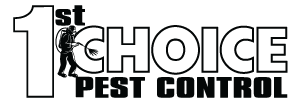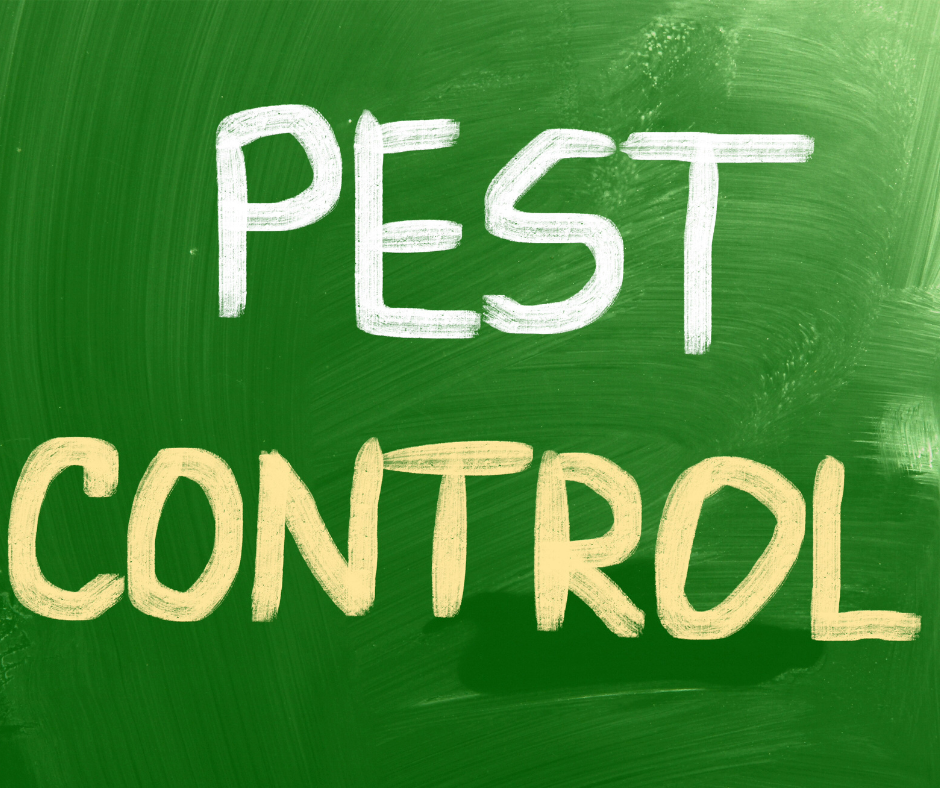Embracing Integrated Pest Management: A Sustainable Approach to Pest Control
In today’s world, A Sustainable Approach to Pest Control practices are becoming increasingly important in every industry, including pest control. Integrated Pest Management (IPM) has emerged as a sustainable approach to effectively manage pests while minimizing environmental impact. At 1st Choice Pest Control, we are committed to implementing IPM strategies to provide eco-friendly solutions for pest control. In this blog post, we will explore the rise of IPM, its application in various settings, and why 1st Choice Pest Control is a leader in sustainable pest management. Let’s dive into the world of IPM and discover how we can protect your property while prioritizing the well-being of the environment.
Understanding Integrated Pest Management (IPM)
Definition and principles of IPM
Integrated Pest Management (IPM) is an approach that combines multiple strategies to manage pests effectively while minimizing reliance on chemical pesticides. It emphasizes a holistic and environmentally conscious approach to pest control. The principles of IPM include:
1. Monitoring: Regularly assessing pest populations and their impact on the environment, allowing for timely intervention when necessary.
2. Prevention: Implementing measures to prevent pest infestations by addressing conducive conditions, sealing entry points, and practicing good sanitation.
3. Treatment: If pest populations exceed acceptable levels, targeted treatments are employed using the least toxic methods available, considering the potential impact on non-target organisms.
Components of IPM: monitoring, prevention, treatment
IPM incorporates various components to achieve effective pest control:
1. Monitoring: This involves regular inspections and the use of traps or other detection methods to assess pest presence, activity, and potential risks.
2. Prevention: IPM emphasizes preventive measures such as removing food and water sources, sealing cracks and gaps, and maintaining proper sanitation to deter pests from entering and thriving in a property.
3. Treatment: When necessary, IPM utilizes the least toxic methods for pest control. These can include targeted applications of pesticides, biological control agents, mechanical techniques (such as trapping or exclusion), or cultural practices (such as crop rotation).
Advantages of IPM over traditional pest control methods
IPM offers several advantages over traditional pest control methods:
1. Reduced reliance on pesticides: IPM minimizes the use of chemical pesticides, focusing instead on preventive measures and targeted treatments, which reduces the risk of harmful exposure to humans, pets, and beneficial organisms.
2. Long-term effectiveness: By addressing the root causes of pest problems and employing a combination of strategies, IPM provides more sustainable and long-lasting pest control compared to relying solely on pesticides.
3. Environmental preservation: IPM prioritizes the protection of the environment by minimizing pesticide usage and promoting the conservation of beneficial organisms and natural ecosystems.
4. Cost-effectiveness: By utilizing a combination of strategies tailored to specific pest problems, IPM can often result in cost savings over the long term, as it reduces the need for frequent pesticide applications and potential damage caused by pests.
By understanding the principles and components of IPM, homeowners and businesses can adopt a more sustainable and effective approach to pest control. 1st Choice Pest Control is dedicated to implementing IPM strategies, ensuring that our clients receive the most environmentally conscious and efficient pest management solutions available.
IPM in Commercial Settings
Pest control challenges faced by businesses
Commercial settings, such as restaurants, hotels, offices, and warehouses, often face unique challenges when it comes to pest control. The presence of pests can have severe consequences, including reputational damage, regulatory violations, product contamination, and financial losses. Implementing IPM strategies in commercial settings is crucial to maintain a pest-free environment and meet hygiene and safety standards.
Benefits of IPM for maintaining pest-free environments
IPM offers several benefits for businesses in maintaining pest-free environments:
1. Integrated approach: IPM combines multiple strategies tailored to specific pest challenges, addressing both current infestations and potential risks. This comprehensive approach ensures effective and long-lasting pest control.
2. Minimized pesticide usage: By focusing on preventive measures and employing targeted treatments, IPM minimizes the reliance on pesticides, reducing the risk of chemical exposure to employees, customers, and the environment.
3. Compliance with regulations: IPM aligns with regulatory requirements and industry standards, helping businesses meet health and safety guidelines and preventing potential penalties or closures due to pest-related issues.
4. Protection of reputation: Maintaining a pest-free environment is crucial for preserving a business’s reputation. By implementing IPM, businesses can ensure a clean and safe space for employees and customers, safeguarding their reputation and customer trust.
Case studies showcasing successful IPM implementation in commercial establishments
Sharing case studies of successful IPM implementation in commercial settings can demonstrate the effectiveness of this approach. Examples may include hotels that successfully managed bed bug infestations using a combination of monitoring, preventive measures, and targeted treatments, or restaurants that implemented IPM strategies to prevent pest contamination and maintained compliance with food safety regulations.
By showcasing these success stories, businesses can understand the real-world applications of IPM in their industry and gain confidence in its effectiveness for their own pest control needs. 1st Choice Pest Control has a track record of successfully implementing IPM strategies in commercial establishments, ensuring a pest-free environment and meeting the unique challenges faced by businesses.
Harnessing the Power of Beneficial Insects in IPM
Role of beneficial insects in natural pest control
Beneficial insects play a crucial role in natural pest control within the IPM framework. They act as natural predators or parasites, preying on pest populations and helping to maintain ecological balance.
For example, ladybugs feed on aphids, lacewings consume caterpillars and aphids, and parasitic wasps lay eggs inside pest insects. By attracting and conserving these beneficial insects, pest populations can be naturally controlled without the need for excessive pesticide use.
Common beneficial insects and their impact on pest populations
There are several common beneficial insects that can assist in natural pest control:
1. Ladybugs: These voracious predators feed on aphids, mites, and other soft-bodied pests.
2. Lacewings: Lacewing larvae are effective predators, feeding on aphids, caterpillars, and other small insects.
3. Parasitic wasps: These wasps lay eggs inside or on pest insects, eventually killing them.
By understanding the role of these beneficial insects and their impact on pest populations, businesses and homeowners can create environments that promote their presence and enhance natural pest control.
Tips for attracting and supporting beneficial insects in gardens and landscapes
To encourage beneficial insects in gardens and landscapes, certain practices can be implemented:
1. Planting native flowering plants: Native plants provide nectar and pollen sources for beneficial insects, attracting them to the area.
2. Providing shelter and habitat: Incorporating elements like flowering shrubs, hedgerows, and rock piles create habitats for beneficial insects to reside and reproduce.
3. Minimizing pesticide use: Reducing or eliminating pesticide usage helps maintain the health and abundance of beneficial insect populations.
By incorporating these practices, businesses and homeowners can create an ecosystem that supports natural pest control, reducing the need for chemical interventions and promoting sustainability.
At 1st Choice Pest Control, we recognize the value of beneficial insects in IPM strategies. Our approach emphasizes the conservation of these organisms and their integration into pest control plans to maximize effectiveness while minimizing environmental impact.
IPM for Sustainable Agriculture
Transforming the agricultural industry with IPM
IPM has had a transformative impact on the agricultural industry by promoting sustainable pest control practices. Farmers and growers are increasingly adopting IPM principles to reduce reliance on chemical pesticides, protect the environment, and ensure the long-term viability of their operations.
Integration of biological control, crop rotation, and cultural practices
IPM in agriculture involves integrating various techniques:
1. Biological control: Encouraging the presence of beneficial insects, predators, or parasites to control pest populations naturally.
2. Crop rotation: Rotating crops between seasons disrupts pest life cycles and reduces the buildup of pest populations.
3. Cultural practices: Implementing practices such as sanitation, proper irrigation, weed management, and maintaining healthy soil to minimize pest susceptibility.
By combining these strategies, farmers can manage pests effectively while minimizing the use of chemical pesticides, reducing environmental contamination, and promoting the overall health and sustainability of agricultural systems.
Benefits of IPM in preserving soil health, reducing water contamination, and promoting biodiversity IPM offers several benefits for sustainable agriculture:
1. Preserving soil health: By reducing reliance on chemical pesticides, IPM helps maintain a healthy soil ecosystem and promotes the growth of beneficial organisms, contributing to long-term soil fertility.
2. Reducing water contamination: By employing targeted treatments and minimizing pesticide usage, IPM helps prevent the runoff of chemicals into water sources, reducing the risk of water contamination.
3. Promoting biodiversity: IPM practices encourage the conservation of beneficial organisms, leading to increased biodiversity and a more resilient agricultural ecosystem.
The adoption of IPM principles in sustainable agriculture not only safeguards crop health but also supports environmental preservation and the production of healthy and safe food.
1st Choice Pest Control understands the importance of sustainable agriculture and supports farmers in implementing IPM practices. Our expertise in IPM allows us to provide tailored solutions for pest management in agricultural settings, ensuring the balance between effective pest control and environmental stewardship.
Choosing 1st Choice Pest Control for IPM Excellence
Expertise and commitment to IPM practices
1st Choice Pest Control is dedicated to excellence in IPM implementation. Our team comprises trained professionals with expertise in sustainable pest control practices, and we stay up-to-date with the latest IPM techniques and research.
Trained technicians and eco-friendly approach
Our trained technicians understand the importance of minimizing environmental impact. We utilize eco-friendly products and techniques, prioritize the conservation of beneficial organisms, and strive to achieve long-term pest control solutions while minimizing pesticide use.
Innovative technologies utilized in IPM
We embrace innovative technologies to enhance our IPM practices. From monitoring systems and digital tools to assess pest populations to targeted application methods, we leverage technology to provide efficient and effective pest control solutions.
Customer testimonials and success stories
Our track record of successful IPM implementation is reflected in our satisfied customers and their testimonials. We have helped numerous clients achieve sustainable pest control outcomes while prioritizing environmental responsibility.
At 1st Choice Pest Control, we are proud to be a trusted partner for those seeking sustainable and effective pest management solutions. By choosing us, you can have confidence that our expertise in IPM will help you achieve pest-free environments while minimizing environmental impact.
Conclusion
In conclusion, Integrated Pest Management (IPM) offers a sustainable approach to pest control in residential, commercial, and agricultural settings. By understanding and implementing IPM principles, we can effectively manage pests while minimizing reliance on harmful pesticides and protecting the environment. 1st Choice Pest Control is committed to implementing IPM strategies, utilizing innovative techniques, and providing eco-friendly solutions for our clients. Together, let us embrace IPM and prioritize sustainable pest management for a healthier and greener future.



 Service Request
Service Request